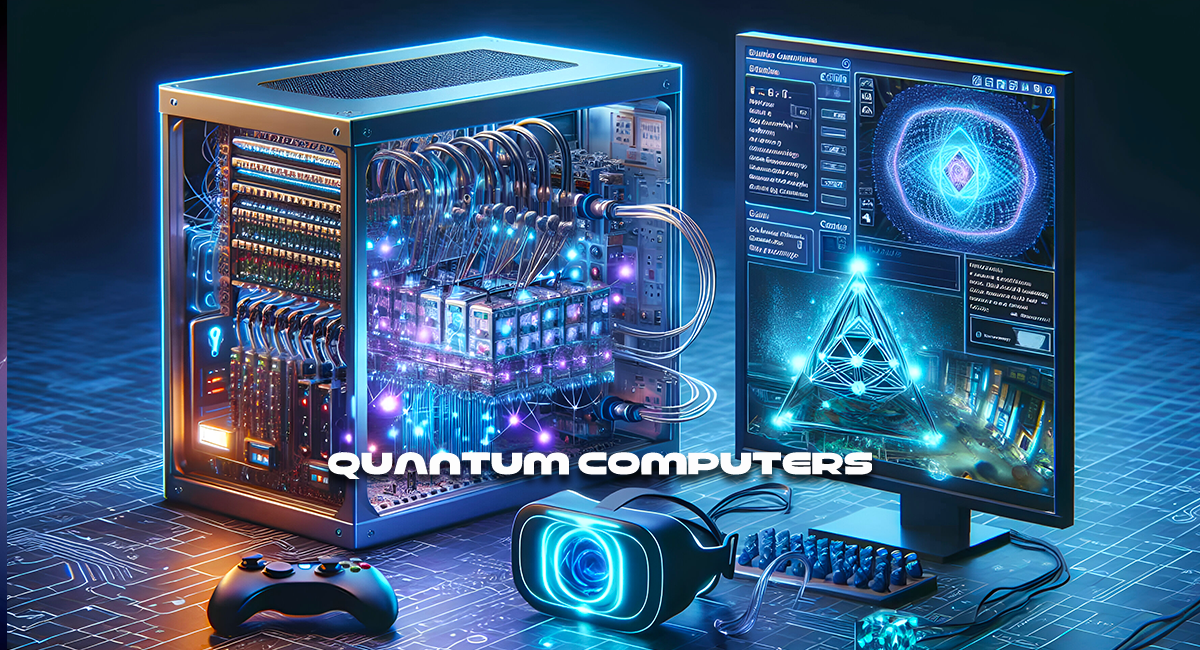Quantum computers are slowly picking up from being a theoretical concept, especially in the US. The quantum race is getting hotter, with the reins being driven by big organizations like IBM, Microsoft, and Google. This is Quantum Computers 60 mintues overview: Definition, How Special, and Its Potential to Change Technology in the Future—all within the next sixty minutes.
Quantum Computers: A Brief Introduction

Comparing the quantum computer with those classical computers which apply the binary bits (0s and 1s) to perform computation. It is like taking a big leap ahead. Now, replacing the binary bits, the qubits in the quantum computer, having shared states. However will hold any possible values at every instant during the operation of the quantum computers 60 minutes. The quantum computers then solve weird equations at great speeds.
The United States is leading in the innovation race for quantum computing after tremendous research and investment. Businesses, academic institutions, and governmental organizations are combining to form paths on which they can realize quantum computing.
Figure Illustrating 60 Minutes for Understanding a Quantum Computer
It may appear like a scary endeavor to comprehend quantum computing in just sixty minutes. But not knowing its subject, certainly narrowing down to the bare basics.
Qubits and Superposition: One of the characteristics qubits have over classical bits is superposition. Because of it, qubits can hold the values of 0 and 1 at once. That allows quantum computers to work on huge chunks of data at the same time in parallel.
Entanglement: Intrinsic to quantum computation is the entanglement of qubits. The state of one qubit in fact determines the instantaneous state of the other. Combining these exponentially increases the processing capacity.
Quantum Speedup: Quantum computers can perform some calculations exponentially faster than classical computers for phenomena of superposition and entanglement. With quantum computing at play, the task may be completed in milliseconds or seconds. That a million years is taken by traditional computers.
Why America Is Leading the Pursuit of the Fastest Quantum Computer
The United States leads the race in quantum computing. Here is why:
State Assistance: Quantum research has attracted huge funding from the US government. The year 2018 saw the adoption of the National Quantum Initiative Act. That emphasizes the importance of quantum technology as part of competitiveness and security in the economy.
The Private Sector: Some of the most powerful corporations of the day are in a race to develop quantum computers. IBM, Google, and Microsoft are leading the way. IBM is actively providing public access to its quantum processors through the Quantum Experience. While Google’s Sycamore processor aggregate achieved quantum supremacy in 2019 by cracking a benchmark that classical computers could not.
Academic Excellence: Among the top American institutions researching quantum computing are the Massachusetts Institute of Technology, Stanford, and Harvard universities. They are preparing future quantum scientists and engineers.
Partnerships and Ecosystems: It is the collaboration and interaction among the government, business world, and academia that creates a congenial atmosphere that, in turn, helps in the accelerated development and commercialization of quantum computing.
Quantum Computing Characteristics

Acknowledging the special qualities of quantum computers 60 minutes helps in realizing their full potential. These are some of the necessary qualities:
Parallel Processing: Since qubits can exist in numerous states at the same time, quantum computers can do multiple calculations at once.
Exponential Scalability: Unlike the classical computers which see a linear rise in processing capability with each addition of qubit, quantum computers witness an exponential growth in such processing prowess.
Low Energy Consumption: Quantum computers are more eco-friendly compared to classical supercomputers, since they use much less energy. For some applications, quantum computers can have quantum supremacy, solving something that is almost impractical for classical computers. Good for problems classical computers cannot easily solve, like simulations, optimization problems, or huge datasets.
Improved security: Quantum cryptography offers previously unknown levels of security by developing almost unbreakable encryption based on the principles of quantum mechanics.
Using Quantum Computing in the United States
In the USA, quantum computing has the potential to reshape the operations of various sectors, such as healthcare and banking. Some of the exciting applications include :
Medical Care: Quantum computers 60 minutes could revolutionize the way in which chemical structures are looked at—details that classical computers would simply never be able to produce. This fact could bring about a speedier deployment of new drugs and therapies.
Financial Modeling: Finance is another domain where quantum computers could churn out predictive models, risk management of superior acumen, and optimal intricate portfolios in ways more realistic than before. This could completely change the nature of investment management.
Cryptography: Quantum computing will change the policy of encryption standards. A variety of industries, from banking to defense, will need to adopt quantum-safe cryptography standards to stake a claim on data safety in the quantum era.
Artificial intelligence: Quantum computing is expected to yield machine learning algorithms of such influence and effectiveness that artificial intelligence development will be rapid and much better. With it, everything will change, from personalized medicine to the use of driverless cars.
Supply Chain Management: This is another place where the quantum computer can be of much help in a big way in cost reduction and increased effectiveness through supply chain optimization, given the large scope of data and variables.
Climate models will be advanced significantly with quantum computers, enabling a drastic improvement in their resolution to understand and respond to climate change.
Cost and Availability of Quantum Computers
The cost of the development, operation, and utilization of quantum computers 60 minutes is reported to be one of the primary impediments to widespread implementation. There can be a variation in costs for different quantum computers. That range between a million and tens of millions of dollars, based on complexity and the number of qubits.
However, some endeavors are channeled towards addressing the increased accessibility of quantum computation. For instance, the IBM Quantum Experience allows cloud-based access to its quantum processors and, in this way,. It offers an aperture for business enterprises and interested researchers to play with quantum algorithms without actually owning a quantum computer.
Problems and Prospects of Quantum Computing in the United States
Large potential though these techniques developed only in quite a recent past, still some serious issues remain of action.
Technical difficulties: the most severe problem of the quantum computers 60 minutes is to create and maintain strong states of qubits. Quantum systems present a stark sensitivity to their environment; this goes on to make coherent preservation one of the major challenges in physical implementation.
Scalability: In other words, the main challenge is to scale the number of qubits while keeping them in a coherent state and their error rate low, which, in turn, puts limitations on the complexity of issues the modern state of quantum computers can handle. Workforce Development: Highly specialized skills, completely required in the field of quantum computing, demand training in building staff capability toward advancing this technology.
Regulative Framework: As quantum computing matures so too will the security and privacy laws surrounding the information.
Quantum computing has a promising future in the USA. The quantum computers can perform similar to classical computers if the technology is advanced and if the barriers are overcome.
For 60 Minutes Quantum Computing: Looking to the Future

We have reviewed the fundamentals of quantum computing 60 minutes and how the technology pertains to the United States in minutes—what the future may hold for quantum computing. Certainly, most of the interesting and exciting activities in the development and application of quantum computation will happen in the next decade.
New opportunities will be opened with quantum technology being available and affordable for a number of industries. It is critical to keep pace with these developments. Because the impact of quantum computing on everyday life and businesses could be entirely unexpected but significant.
Conclusion
Quantum computing is not just a catchphrase. It’s a disruptive technology that will reshape markets and solve problems that have seemed intractable. Quantum technology is moving with increasing speed toward maturity in the United States. And powered by large investments and growing partnerships.
This primer on quantum computing for 60-minute programs can just be useful for those discerning the future of computing. Whether well-versed as a professional in the subject, a tech fanatic, or just curious about it. Knowledge will be the key in keeping pace with these advances as we probe ever deeper into the quantum world in our search for meaning in the technological landscape of the future.



3 thoughts on “Sixty Minutes on Quantum Computers: Changing the World of Tech in the US”